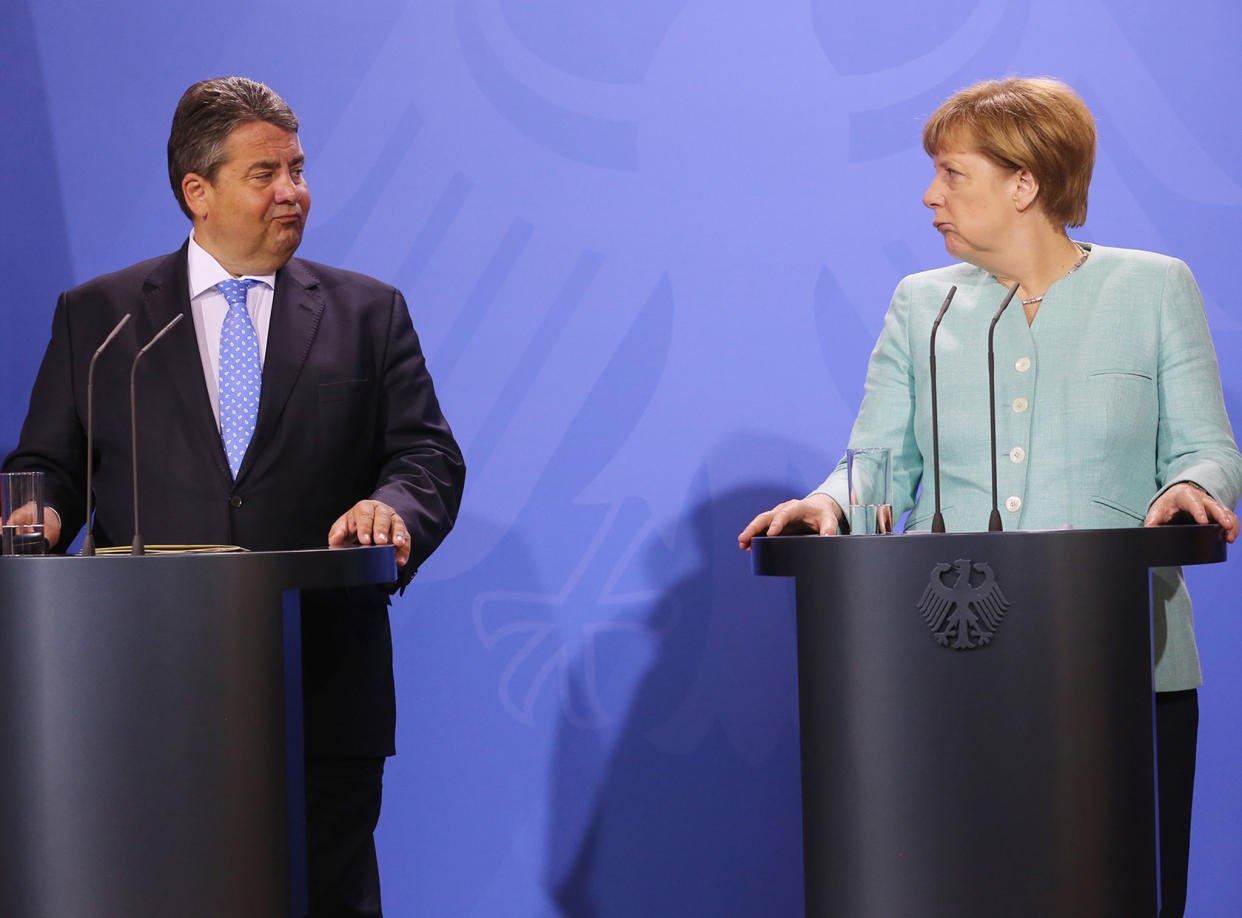Merkel advisors say Germany has 'given up' on Donald Trump acting like a President

Germany is concerned that it is being left on the sidelines by Donald Trump, with senior advisers unable to open communication channels with the new administration.
The Merkel government is insisting the US honours existing trade agreements amid fears the country is in for “a rough ride” from President Trump, who has said the UK will be “at the front of the queue” for new deals.
And, according to reports in German media, advisors to the Chancellor have "given up" hoping that the new President will act in a statesmanlike manner.
“None of us here believe that anymore,” one of the Chancellor’s advisers told Handelsblatt. “The Americans, and the world, will get the Trump they elected.”
German Vice Chancellor Sigmar Gabriel said after Friday’s inaugaration that Germany might need a new economic strategy geared towards Asia if the US government imposes protectionist policies.
It comes amid concerns the Mr Trump will be far more protectionist than his predecessor with question marks hanging over the future of the hugely important Transatlantic Trade and Investment Partnership deal.
“I think we have to prepare for a rough ride,” Mr Gabriel said in an interview with broadcaster ZDF, in the first official German reaction to Trump's inauguration.
The leader of the left-leaning Social Democrats (SPD), coalition partners of Chancellor Angela Merkel's ruling Conservatives, dismissed suggestions President Trump may not pursue some of his controversial promises, such as imposing high tariffs on cars imported from Mexico.
“He means it extremely seriously,” said Mr Gabriel. “What we heard today were high nationalistic tones.”
President Trump has been critical of the European Union, labelling it “a vehicle for Germany”, and said the UK was “so smart” following the Brexit vote.
And he emphasised his enthusiasm for the “special relationship” between the UK and the US, reportedly even referring to Prime Minister Theresa May as “my Maggie”.
He will meet Ms May in Washington this Friday, but has not yet scheduled a meeting with Ms Merkel, and has spoken to her only once since winning the election.
As the longest serving leader in western Europe, Ms Merkel enjoyed good relations with former Presidents Barack Obama and George W Bush, but the German Govenment has reportedly struggled to contact the Trump team since he was elected.
President Trump told The Times and Germany newspaper Der Bild in a joint interview that he has always “had great respect” for Ms Merkel, but described her decision to allow a million migrants into Germany as a “catastrophic mistake” that had opened the door to terrorism.
Mr Trump criticised German car makers for not producing more cars in the US, and said he will impose a 35 per cent tax on imported vehicles as part of his pledge to “put America first”.
German finance minister Wolfgang Schauble warned the President he will be bound by international trade agreements following concern from German industry.
He told the German publication Der Spiegel: “If Trump really wants to tell Americans which cars to buy, I wish him luck.
“The United States also signed international agreements. I don’t think a big trade war will break out tomorrow, but we will naturally insist that agreements are upheld.”
Germany employs around 600,000 workers in the US and remains its biggest European trading partner.
Sources claim that while the inauguration was happening in Washington DC on Friday, the German leader was attending the opening of an art museum in Potsdam.
But speaking the day after the inaugeration at a news conference, Ms Merkel said she would “always seek compromise” with the President and that transatlantic relations “would not be less important” in the coming years.
“[Trump] made his convictions clear in his inauguration speech,” she said. “I say two things with regards to this: First, I believe firmly that it is best for all of us if we work together based on rules, common values and joint action in the international economic system, in the international trade system, and make our contributions to the military alliances.
“And second, the transatlantic relationship will not be less important in the coming years than it was in past years. And I will work on that,” she added.

 Yahoo News
Yahoo News 
